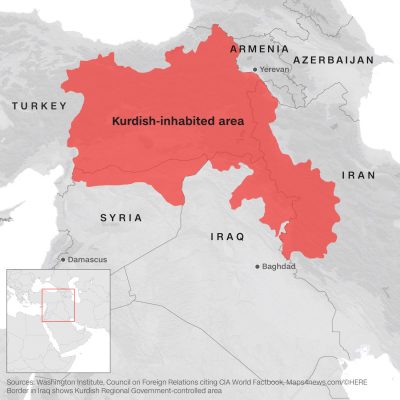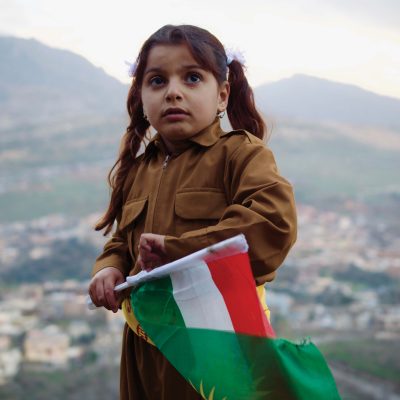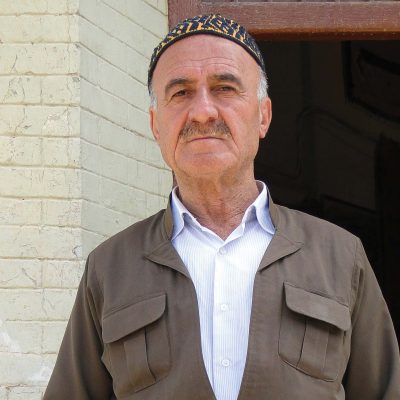×


We have detected your country as:
Please click here to go to the USA website or select another country from the dropdown list.
by: Kate Norman, BFP Staff Writer
 A Brief Guide to the Main Participants:
A Brief Guide to the Main Participants:
A boy screams in pain as the outer layers of his skin burn off from a chemical attack. Two men are bound by the side of the road and shot. Disoriented people struggle to scramble out of their own pools of blood after a bombing. These are a few of the horrifying images coming out of northern Syria since Turkey launched an offensive in October, deceptively named “Operation Peace Spring.” Hundreds of thousands have been forced to flee the region, and an estimated hundreds of civilians have been killed—with more dying each day.
 Who are these people being targeted by the Turkish regime? They are the same group that constitutes nearly 20% of Turkey’s population, making them the largest minority in that country: the Kurdish people—often described as fiercely loyal, pro-Israel and pro-US.
Who are these people being targeted by the Turkish regime? They are the same group that constitutes nearly 20% of Turkey’s population, making them the largest minority in that country: the Kurdish people—often described as fiercely loyal, pro-Israel and pro-US.
Who Are the Kurds?
Though the Kurds are referred to as a single entity under Turkish fire, it is difficult to speak of them as a unified society. Known mainly as the largest ethnic group in the world without an independent state of their own, the Kurds comprise hundreds of tribes spread primarily across Turkey, Iran, Syria and Iraq. Descended from the ancient Medes, there are an estimated nearly 45 million Kurds in the world today, most (nearly 20 million) living in Turkey, followed by 12 million in Iran and the rest spread mostly throughout Syria and Iraq. The Kurds were promised their own state after World War I, but that promise fell through the cracks of the multiple treaties dividing up land after the war.
 Though they share an ethnicity, the Kurds hold to different religions, different political leanings, even different political goals. They speak dialects of the Kurdish language that are so different they sometimes can’t understand each other. Many also speak Turkish or Arabic, depending on where they live. Some want to establish a free, independent Kurdish state. Others simply want citizenship or to hold equal rights in the countries they currently live in.
Though they share an ethnicity, the Kurds hold to different religions, different political leanings, even different political goals. They speak dialects of the Kurdish language that are so different they sometimes can’t understand each other. Many also speak Turkish or Arabic, depending on where they live. Some want to establish a free, independent Kurdish state. Others simply want citizenship or to hold equal rights in the countries they currently live in.
This isn’t the first time the Kurds have been under attack, and Turkey isn’t the first aggressor. One example in a long line of carnage against these people occurred in 1988 just before the end of the Iran–Iraq war. Saddam Hussein ordered a gas attack on the Kurdish people in an Iraqi town called Halabja—killing nearly 12,000 Kurdish men, women and children in retaliation for siding with Tehran.
Operation Peace Spring
On October 9, Turkish President Recep Tayyip Erdoğan launched an offensive into northern Syria. The available numbers contradict each other, but an estimated 200,000–300,000 civilians have been forced to flee as Turkish forces and their cronies, such as the Syrian National Army (SNA), pound cities in the region. There is little information on how many have been killed, but the images coming out of the region are horrifying. Why all the bloodshed?
 It is part of Erdoğan’s bloody “Operation Peace Spring.” The goal, according to Erdoğan, is to create a “safe zone” in the region of northern Syria for the more than two million displaced Syrian Arabs who had taken refuge in Turkey from the Syrian Civil War. The operation is Erdoğan’s excuse, according to political analysts and the international media, to clear the Syria–Turkey border region of YPG, the fighting force that protects Kurds in that region, which Turkey claims is the PKK’s (a separatist communist group in Turkey) proxy in Syria. Turkey has accused the PKK and the YPG of terrorism worse than that of ISIS.
It is part of Erdoğan’s bloody “Operation Peace Spring.” The goal, according to Erdoğan, is to create a “safe zone” in the region of northern Syria for the more than two million displaced Syrian Arabs who had taken refuge in Turkey from the Syrian Civil War. The operation is Erdoğan’s excuse, according to political analysts and the international media, to clear the Syria–Turkey border region of YPG, the fighting force that protects Kurds in that region, which Turkey claims is the PKK’s (a separatist communist group in Turkey) proxy in Syria. Turkey has accused the PKK and the YPG of terrorism worse than that of ISIS.
Deemed by the Kurdish people and their supporters as an excuse to commit an ethnic cleansing—or even genocide—Peace Spring fits Merriam-Webster’s definition of ethnic cleansing: “the expulsion, imprisonment or killing of an ethnic minority by a dominant majority in order to achieve ethnic homogeneity.” Erdoğan said himself that “Arabs are most suitable for this area,” adding “those areas aren’t appropriate for Kurds’ lifestyles, because they’re desert.”
Though Turkish forces have indiscriminately shelled Kurdish civilians, most of the hands-on dirty work has been done by the Turkish-backed SNA, described by Erdoğan as holy warriors of Islam, “heroes of the Mohammadian Army,” “defending their land there, hand in hand, arm in arm, shoulder to shoulder with my soldiers.”
Israel Standing with the Kurds
 The Jewish state has chosen to stand with the Kurds, providing diplomatic and humanitarian aid as they fight for their very survival.
The Jewish state has chosen to stand with the Kurds, providing diplomatic and humanitarian aid as they fight for their very survival.
Israel’s deputy foreign minister told the Knesset (Parliament) in November that the Kurds had asked the Jewish state for help since the beginning of the Turkish invasion, adding that Israel “identifies with the deep distress” of the Kurds and is “assisting them through a range of channels.”
Deputy Foreign Minister Tzipi Hotovely detailed to Israeli officials how the Kurds had played a key role in defeating ISIS, paying a high price to do so—losing over 11,000 Peshmerga, YPG and SDF fighters in the struggle against radical Islam.
“Israel has a vested interest in maintaining the strength of the Kurds and other minorities in the northern region of Syria, as moderate and pro-Western elements who have proven their value many times over the years, especially during the war against ISIS.”
Kurdish forces provide a buffer between the Jewish state and more sinister neighbors, Hotovely added. “The possible deterioration of the Kurdish hold in northern Syria is a negative and dangerous scenario as far as Israel is concerned. It is absolutely clear that, if such a scenario materializes, this would lead to the bolstering of negative elements in the area, under the auspices of Iran.”
Israel, who so often has had to stand alone, is contradicting the well-known Kurdish proverb that these historically besieged people have no friends but the mountains in which they take shelter.
Photo Credit: see photos for photo credit
All logos and trademarks in this site are property of their respective owner. All other materials are property of Bridges for Peace. Copyright © 2024.
Website Site Design by J-Town Internet Services Ltd. - Based in Jerusalem and Serving the World.